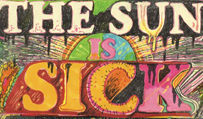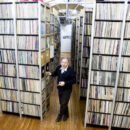 By Dan Kimpel
By Dan Kimpel
With the odometer of her Volkswagen Jetta surpassing the 315,000-mile mark, singer/songwriter and musician Shannon Curtis is one well-traveled performer. Working from her home base in South Pasadena, CA, she has devised a circuit of performance venues. And as the title of her recently released eBook No Booker, No Bouncer, No Bartender: How I Made $25K On A 2-Month House Concert Tour reveals, she has discovered a viable alternative to performing in clubs.
“This house concert idea was born out of making a club touring model work,” Curtis says. “We had dedicated ourselves to hitting five west coast cities once a month for five months in a row: Seattle, Portland, San Francisco, Sacramento and Los Angeles. We were trying to get the most bang for the buck on the club shows, but we had all of these days in between and I didn’t want to sit idle on the road. Almost by accident I’d had a successful house concert experience in San Diego, so I decided to book these as filler dates in between shows.”
When she compared the amount of money, the number of fans added, and the merchandise sold, a new paradigm was realized. “Over five months the house concerts out performed the club shows on every level. We met followers of music who would stick around.”
Curtis, who has released a series of independent CDs, has garnered placements on television shows including Pretty Little Liars, Extreme Makeover: Home Edition, and The Hills. Crowd sourcing will support her next release, METAFORMA. “I wouldn’t call myself a big risk taker or an out-of-the-box thinker,” she says. “I stumbled into something and had some success, and decided to build on it.”
In her writing, Curtis delivers this advice: “Find your niche, cultivate it, and thrive as a career artist without the help of anyone who traditionally had to tell you ‘yes’ in order for you to get ahead.”
While house concerts have long been a viable alternative to clubs in the folk and Americana genres, Shannon Curtis does not sit on a stool and strum an acoustic guitar: she performs electronic, synth-based music. “The audiences I play for are not the Americana audiences,” she says. “There is a fresh crop of people who haven’t been to a house concert. The ones we play are hosted by regular folks who happen to follow my music.”
Although connecting to fans through social media is essential, one prime advantage to performing house concerts is that the person hosting the concert is the promoter. “A good host is going to be someone who is a fan of you as a person: either a stranger who loves your music, or a friend or family member who wants to help spread the word,” writes Curtis in the eBook.
Meeting the guests before the show and hanging out with them after is all part of the experience, according to Curtis. “A lot of the people we’re reaching wouldn’t necessarily go to a club for music.” She says the span of ages might range from 30-60, but she observes that it depends on the host and their circle of friends. “If the hosts are a 35-year-old couple, then their friends will be in that demographic. Every night is different.”
For the house concerts, Curtis does not have a set ticket price; rather she relies on what she calls “a donation-based model.” Also, it is up to the hosts to ask people to donate money. “It would be awkward for me to say, ‘Can you donate to the performance I just gave? ‘We find the hosts like being part of this. They want great times at their houses.”
The idea for the eBook evolved when musician friends asked her how she was thriving. “I spent years honing every detail,” she says. “A five- minute explanation wasn’t enough.” She doesn’t believe that sharing this information will in any way diminish her own success. “In this model the competition is taken totally out of it. If you can cultivate your own thing with your own audience, there are plenty of people to go around––if you are willing to work.”
Visit http://shannoncurtis.net










